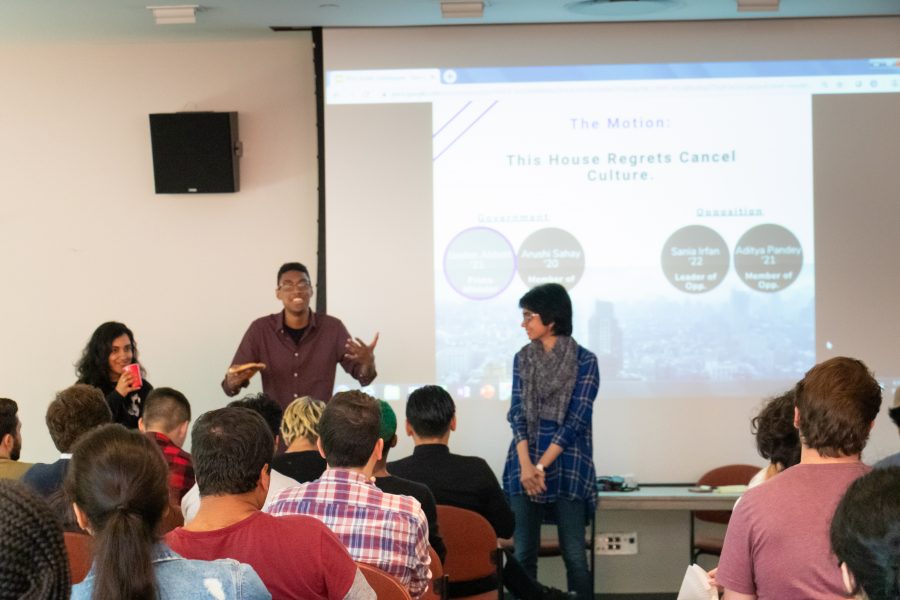The merits of cancel culture — when a celebrity is vilified online due to actions perceived as problematic — were the subject of a student debate Monday, with some calling it necessary and others calling it harmful. NYU’s Parliamentary Debate Union hosted the event in the Kimmel Center for University Life.
On social media in recent years, some celebrities have faced intense backlash online for their comments or posts. Examples include when Kanye West said that slavery was a choice, or when Scarlett Johansson defended being cast in minority roles, saying “I should be allowed to play any person, or any tree, or any animal.”
At the debate, CAS junior Jaedon Abbott related canceling someone to having a zero-tolerance policy for mistakes. Abbott said that this mentality is dangerous because when a similar attitude is applied to the criminal justice system, it creates systems such as mass incarceration.
“Cancel culture isn’t the only place where we apply this,” Abott said. “It trickles down to the criminal justice system.”
CAS junior Aditya Pandey argued a different position. Pandey said that, because things like racism or sexual assault are difficult to prosecute, cancel culture provides a form of justice and forces celebrities to reckon with their issues.
“We either make conversations about racism and sexual assault or distance ourselves from it,” Pandey said. “When our favorite celebrities are being canceled, we can no longer distance ourselves from it.”
Abott advocated for conversing rather than canceling.
“When people are problematic, they don’t know that they are problematic,” Abott said. “You have to talk to them.”
CAS first-year Mayerly Lara, who attended the event, said the debate was beneficial to continuing a conversation about cancel culture, on which students have different opinions.
“I showed up because I felt this discussion and debate was one that needed to be had,” Lara said. “Especially in a big campus like NYU.”
Attendee and CAS first-year Aniyah Sievewright said she enjoyed the thoroughness of the discussion.
“I found out about the debate during the Club Fest,” Aniyah said. “I was unsure if it would be interesting or not, but luckily they delved deep into cancel culture.”
The pro-cancel culture side continued to restate that the United States does not have any legal mechanisms that can adequately deal with instances of racism and sexual assault. They argued that because of the unique situations that arise, there is a need for unique solutions.
Kevin Spacey is an example of a celebrity who was canceled due to sexual assault allegations raised against him by another actor who said Spacey approached him when he was 14. Roseanne Barr, the lead actress in “Roseanne,” had her show canceled after saying a senior advisor to former President Barack Obama was the equivalent of if the “muslim brotherhood & planet of the apes had a baby,” in a tweet.
In both cases, the celebrities faced consequences for actions, or alleged actions in the case of Spacey, that many perceived as worthy of punishment.
“These things go unchallenged in society,” Pandey said. “They are either glorified or normalized and there are no legal or political mechanisms to challenge them.”
Email Darien Gayle at [email protected].























































































































































